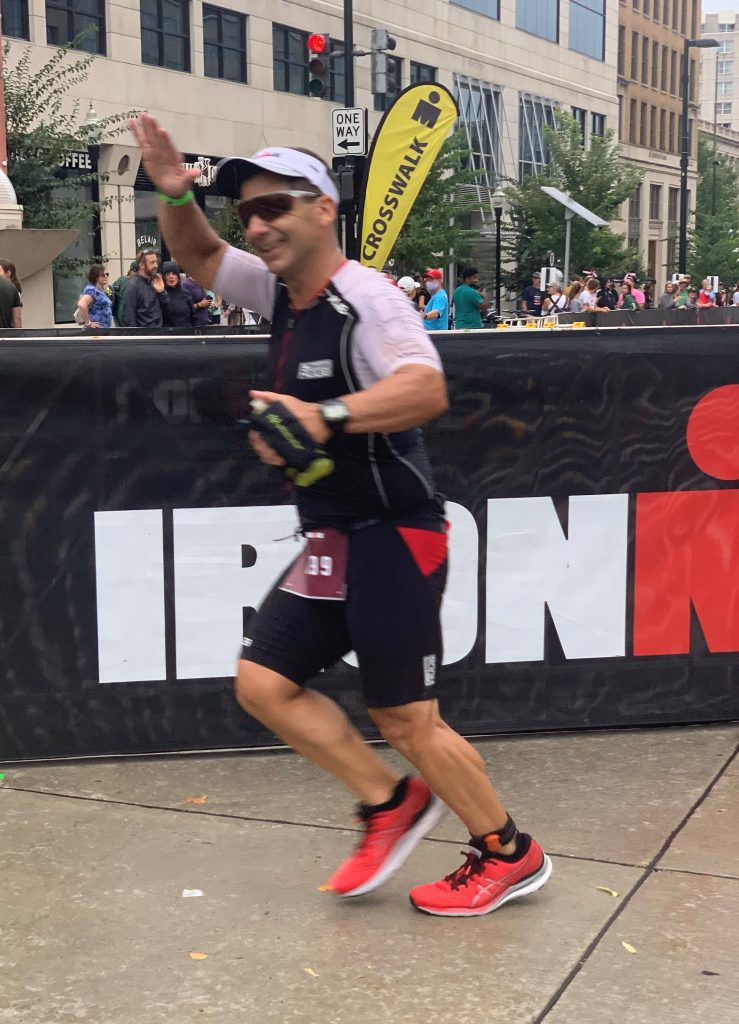This month I completed my fifth Ironman race. For those who aren’t familiar, an Ironman event consists of a 2.4-mile swim, a 112-mile bike ride, and a 26.2-mile (marathon) run that all must be completed within 17 hours. One of the premier endurance events.

Completing an Ironman race can be a life-changing event, with many life lessons realized along the way. However, during my training and the race this year, I also found myself thinking about something else. I began drawing parallels between completing an Ironman event and becoming a leader in an organization. Believe me, there are many complimentary lessons, but here are a few:
Have a plan and clear goals
It is nearly impossible to complete an Ironman event without a plan, as your body must be physically prepared for the challenge ahead (it could be catastrophic otherwise). As in business, the absence of a plan creates limits in your organization and can lead to its demise and failure.
The long-term goal, interim goals, and metrics for assessing performance are clear and measurable. Realize there are controllable and uncontrollable variables. There will be days where things do not go according to plan, and that is okay. Do not dwell on those days; accept them, learn from them, and move on!
Hire a coach
Don’t go it alone. Trying to know everything and taking on an Ironman alone is a significant mistake. It is likely resulting in a DNF (Did Not Finish) or, even worse, injury.
Utilizing the expertise and the motivational talents of others is a must. I absolutely could not have completed 5 Ironman races without the assistance of a coach. My coach helped me not only build my triathlon “skill sets” but was there to keep me in check as well as provide ongoing motivational support.
Like in leadership, there are many times that having someone to guide you and be there as a sounding board only increases your capabilities and helps you achieve your goals.
There will be pain
You might have seen the images of Ironman racers crawling to or collapsing at the finish line. True, there are varying degrees of pain during training and the race itself, but this is expected. In fact, if you do not feel periodic pain from stretching your capabilities, you are likely not improving your endurance and performance level.
The same goes for business. Though this isn’t physical pain, there are times where you need to stretch your capabilities as a leader, and this can create stress, pressure, and even some strong emotions from not only you but possibly even your team. However, assuming that it is directed at doing what is right for the business and adheres to your organization’s values, the result is leadership progress.
You will feel alone
Ironman is an individual event – whether you succeed or fail lies with you. During training and even the race, there are times when you can feel alone. It reminds me of the leadership adage, “it’s lonely at the top.” Yes, it is. It’s a natural part of your leadership journey.
You may not fit the mold
It is truly amazing to see the diversity of athletes that compete in an Ironman – all shapes, sizes, ages, ethnicities, and physical abilities. You observe people who started their journey with limited skills and abilities and even doubt whether they could achieve such a feat. But they persevered and made it across the finish line, hearing their name called followed by YOU ARE AN IRONMAN!! As simple as it sounds, it’s the words every athlete strives to hear.
The same goes for aspiring leaders. No matter who you are or what limitations you think you have, you can achieve great levels of success with the right coaching, mentoring, and commitment to personal development.
Enjoy the journey
Training for an Ironman event is usually done alongside friends and others who are a part of the triathlon community. These are people who count on each other for support and even push each other to perform better. You are on the same journey (but with different performance goals) as all the other participants during races.
On race day, there are hundreds of volunteers on the course assisting at the aid stations, transitions, and at the finish line – they are wonderful people, and their impact can be everlasting. And of course, we can’t forget your family and friends who have supported you all along your journey. Through the ups and downs, they are the ones that were there for you.
As a leader, take the time to reflect on those people in and outside of your organization. Many have impacted your career and maybe even your personal life. Without them, you likely would not have achieved your level of growth and success on your leadership journey – be grateful for that.
From Ironman to leadership, there are many lessons to be learned during the journey. Both are about the ability to endure while remaining steadfast on the goals set forth. I am wishing you the best on your leadership journey!
